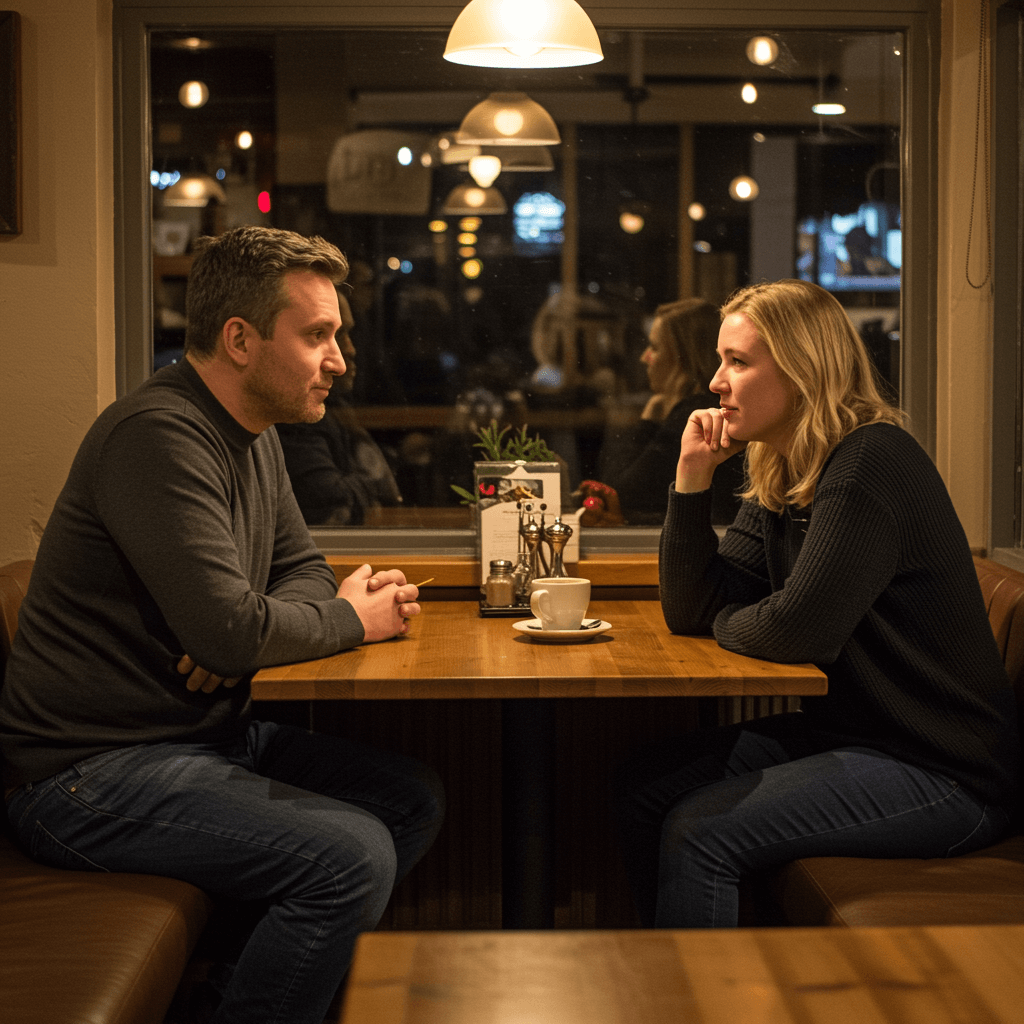The quickest way to undermine a relationship is to ignore what it requires to thrive. When people say, “You shouldn’t have needs in a relationship,” I push back: what about respect? What about feeling appreciated? What about reciprocity? Imagine being with a partner who never values you, speaks to you with contempt, and won’t match the effort you put in—how would that land? Miserable and alone, most likely. Many would eventually walk away. Why? Because even if your basic physical needs—food, water, shelter—are covered, you want certain emotional conditions to be present; otherwise the relationship feels hollow. Call them wants if you like, but if you won’t stay without them, they function as needs. Needing respect, care, and connection doesn’t make you “needy,” it makes you human. We can’t commit to intimacy and then dismiss what another person truly requires to feel safe, loved, and valued. The very reason people enter partnerships is to fulfill needs for companionship and closeness. So the debate isn’t about whether needs exist—that’s semantics. We all have needs and desires without which we won’t feel good in a relationship. The task is mutual: do I want to learn and prioritize this person’s needs, or should I seek a different match? Crucially, having needs doesn’t automatically make it your partner’s sole responsibility to meet them. This isn’t about control or coercion—“You must meet my needs” is an unhealthy stance. A healthy approach asks: how can I help meet this person’s need for safety, connection, and intimacy without violating my own boundaries?
First and foremost, trust is essential for any relationship to flourish. And trust isn’t only about fidelity. That’s the baseline. Trust is built or eroded by everything we do: conversations, daily interactions, and especially how we handle conflict. This isn’t about perfection but about moving in the right direction. Many people don’t realize which behaviors strengthen a bond and which ones chip away at it, and too many relationships end up dying from a thousand small cuts. They didn’t set out to fight constantly or drift apart, but the pattern of behaviors made that outcome foreseeable. So ask yourself: does your partner actually trust you? Maybe they’re not worried about infidelity, but do they rely on you when they’re hurting? Do they feel heard, supported, and consistently able to count on you? Everything else ties back to this. If both partners want the relationship to survive, the question becomes: what does trust look like between us? How can one person show up in ways that provide peace and security rather than anxiety?
Sometimes, despite one partner’s best efforts, the other still struggles with fear and anxiety. That can show up as clinginess and control or as emotional withdrawal and hyper-independence—both rooted in the same fear of vulnerability. When someone subconsciously expects abandonment, they’ll seek evidence to confirm that belief. The result can be assumptions, controlling behavior, avoidance of conflict, or keeping interactions superficial to protect themselves from pain. That dynamic becomes a self-fulfilling prophecy: if you expect to be hurt, you behave in ways that push people away, which then seems to confirm your expectation. Both partners must work on building trust and also on allowing themselves to accept closeness—no small task for someone with trauma in their past. But both efforts are necessary; relationships rarely survive unless trust is both built and received.
Next, consistent and healthy communication is vital. For anyone rolling their eyes at communication being a “need,” know that most people end up with partners who do value it. This isn’t about indulging someone’s anxiety with constant reassurance; it’s about respect and consideration. If you dislike texting, that’s fine—but propose an alternative. Will you call more often? Will you set expectations about response times? Ignoring messages you know bother your partner is not considerate. Maybe you don’t crave deep conversations about hopes and fears, but your partner might. Relationships require compromise: find a level of communication that both of you can live with. If you can’t meet a partner who values frequent contact, don’t dismiss their preference as “needy”—for many people consistent communication is what makes them feel secure.
Conflict is another crucial area. Being able to resolve disagreements safely is a necessity. As Dr. Sue Johnson emphasizes, emotional responsiveness is central: can you make space for someone to be vulnerable about their feelings? When conflict arises, express emotions clearly and respectfully—saying, “I feel like you’re a jerk” isn’t an emotion; saying, “I felt hurt when X happened” is. Often we escalate because earlier, calmer attempts to communicate were ignored. If you’re the one bringing up the issue, slow down—speak quietly, make eye contact, and say something like, “I don’t feel safe bringing things up because I don’t think you’ll listen.” That statement itself highlights how trust is being weakened. If you’re on the receiving end, your job is to listen and try to understand: give them the floor, respond with empathy, and seek the unmet need beneath the frustration. Ask clarifying questions not to trap but to learn. Show you value their pain by being present and compassionate—that is emotional responsiveness.
Trust during conflict also requires not weaponizing disagreements or making every conversation a character attack. Neither partner should feel they must shout to be heard. Nor should one side constantly make the other out to be the villain. Both people should regulate themselves before speaking, avoid blaming, take responsibility for their feelings, and aim to repair ruptures when they occur. Breakdowns are inevitable, but repair is a deliberate choice: humility, apology, and a conversation about how words and actions affected the other person rebuild closeness. Validation matters—acknowledging someone’s experience doesn’t mean you agree with every detail; it means their feelings deserve to be understood. Too often arguments devolve into “you did this to me” counters instead of sincere attempts to hear one another. If someone brings a concern up vulnerably, let them finish. If you respond immediately with, “Well, you do this to me too,” you’ve undermined the moment and refused to give them space. After they feel fully heard, there will be room to share your perspective. Both partners should aim to reflect back, offer verbal and nonverbal cues of listening, and cultivate an environment where the other feels emotionally safe to disclose their inner life.
We must also demand mutual accountability: when criticism, contempt, or passive-aggressive behavior appears, both partners should insist on better ways of interacting. In heterosexual relationships, research from Dr. John Gottman indicates that when a man rejects his partner’s influence, the odds of marital dissolution rise dramatically. That underscores how important equality, respect, and mutual influence are. We must be teammates. If you chose this person out of everyone in the world, be willing to hear their feedback without assuming it’s an attack. That doesn’t excuse rudeness or nagging, and Gottman also points out the benefit of a high ratio of positive to negative interactions—aiming for many more moments of affection and appreciation than criticism. Still, honesty delivered respectfully is necessary. A relationship can’t be intimate and trusting if either person’s ego collapses when offered loving feedback.
Practical life issues—parenting, household chores, the mental load—also require teamwork. Whether you’re the primary earner or the stay-at-home parent, both roles are demanding in different ways; they deserve acknowledgment and cooperation. Don’t let dishes become a wedge between you. Coming home doesn’t automatically absolve one from participating in the emotional and domestic labor. Both people deserve time to decompress, but both share responsibility for maintaining the household and the relationship.
Boundaries are another cornerstone. You can’t feel safe with someone who disregards your limits. Everyone has boundaries around sex, conflict, time, and energy. Learning a partner’s boundaries is part of truly knowing and honoring them. If you don’t know what makes your partner feel loved and safe, ask—and if they don’t know how to describe their needs, start by asking what feels disrespectful or distancing. People often can name what they don’t want based on past hurts, and from those negatives you can work backward toward what feels good.
Sex and physical intimacy are one of the more contentious topics. Is sex a need? Not in the sense of obligating someone to perform acts against their will—no one should ever be shamed, coerced, or forced into sexual activity. That is abuse. Far too often the language of “I need intimacy” has been used to justify control, objectification, or entitlement, and that’s unacceptable. At the same time, sexual intimacy can legitimately be a part of what makes a relationship feel close, desired, and fulfilling. The discussion isn’t binary. Intimacy is broader than sex; it’s about being known, feeling pursued and wanted, and sharing a unique form of affection reserved for your connection. Sex is usually the fruit of an established safety and closeness—not its foundation. Many people speaking about a lack of sexual intimacy are really describing an absence of feeling desired or pursued, which matters in long-term partnerships. If one partner needs sexual affection to feel connected and the other has little interest, that mismatch requires honest evaluation: can you accept grieving that unmet need, or is it a dealbreaker?
Terry Real offers a helpful way to weigh this: are enough of my needs being met to tolerate those that aren’t? No partner will satisfy every need. Sometimes a relationship meets core needs sufficiently; other times it doesn’t. The important distinction is whether you’re imposing your needs on someone or you’re clarifying what you require to feel safe and collaborating to see if the two of you can construct that kind of relationship. Sometimes you’ll be able to; sometimes you won’t.
Beware of people who weaponize needs—asking to share your location at all times, demanding nightly access to your phone, or insisting on hourly check-ins to prevent their anxiety. Those examples show how a stated need can be used to justify controlling behavior. And to those who argue that you should meet all your own needs alone: independence is valuable, but taken to an extreme it can morph into avoidant detachment. People who learned early on not to rely on others often struggle to tolerate emotional closeness and may lack the capacity to meet normal relational needs. That pattern can perpetuate the very breakups they expect because they never risk deep connection. In healthy relationships, partners have opportunities to meet some of one another’s needs, which builds trust and closeness. Choosing to meet your partner’s needs is an act of love: it honors, leans in, and sometimes requires sacrifice, while still allowing for setting boundaries and expecting respectful behavior in return.
If you highly value independence, that’s legitimate; autonomy matters and should be respected so you don’t feel smothered. Prioritizing independence doesn’t mean neglecting responsibilities or failing to support each other—it may mean spending some time apart to recharge. People often pair with partners who have different recharging styles, so awareness and compromise are key. Ultimately, love involves learning to give care in the ways your partner understands and receives it. Let’s not get hung up on semantics. If you love someone, you should want them to feel good in the relationship. It’s not about winning an argument over words—it’s about truly knowing how your partner experiences love and connection, and being willing to do the work together. Relationships function when both people invest in understanding, communicating, and caring for one another.


 These Relationship Needs Don’t Make You "Too Needy"">
These Relationship Needs Don’t Make You "Too Needy"">






 The 5 Shocking Levels of Avoidants in Dating: Which One Are You?">
The 5 Shocking Levels of Avoidants in Dating: Which One Are You?">
 "I’m Not Sad He’s Dead."">
"I’m Not Sad He’s Dead."">
 How Trauma Bonds Wreck Your Mental Health">
How Trauma Bonds Wreck Your Mental Health">
 Don’t Stonewall the Narcissist.">
Don’t Stonewall the Narcissist.">
 The Final Desperate Move Avoidants Make When They See You Moving On">
The Final Desperate Move Avoidants Make When They See You Moving On">